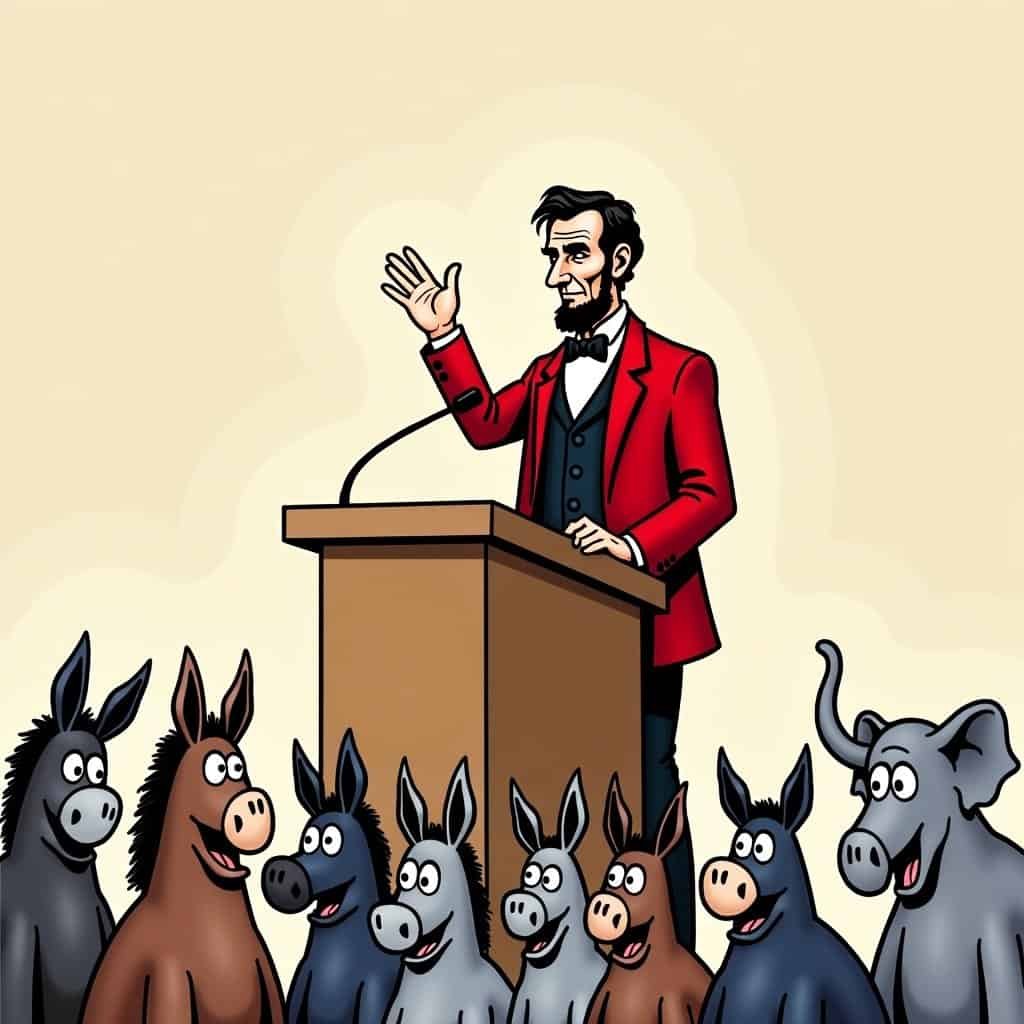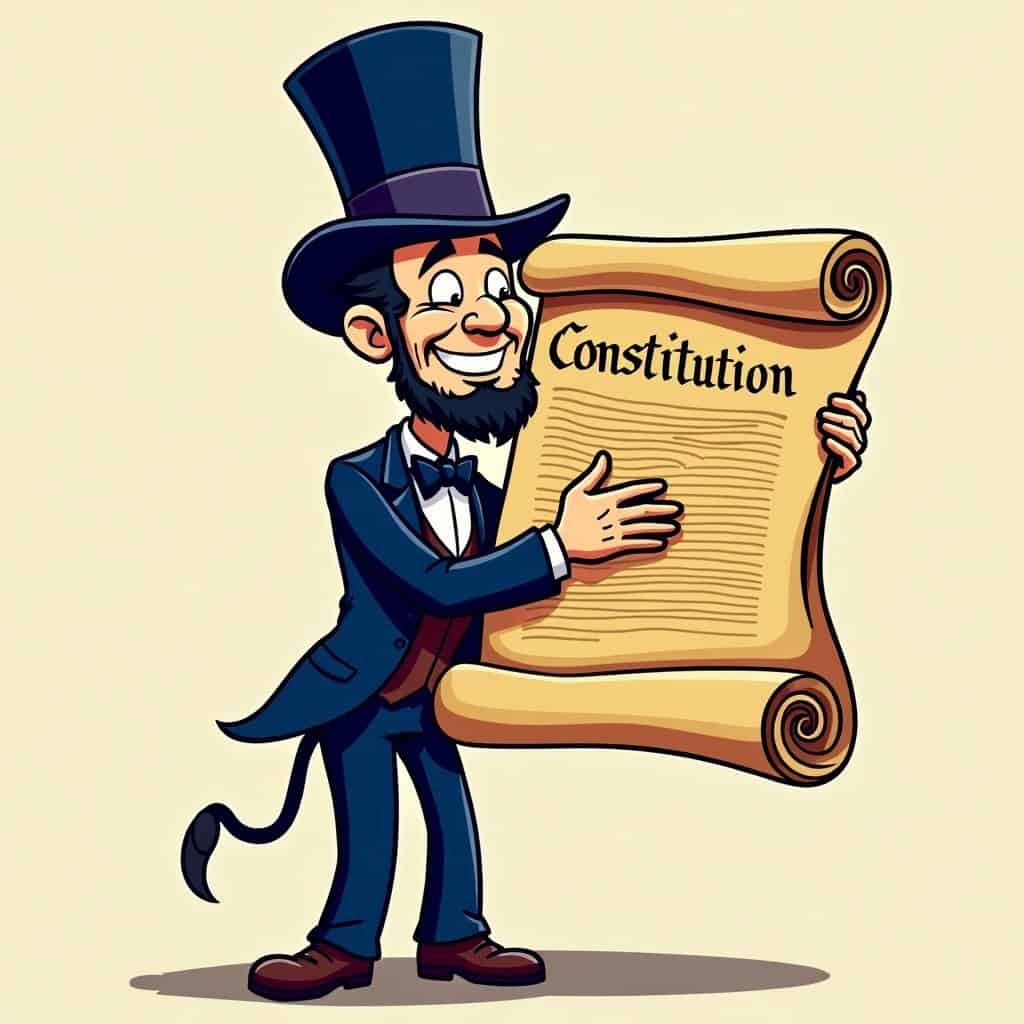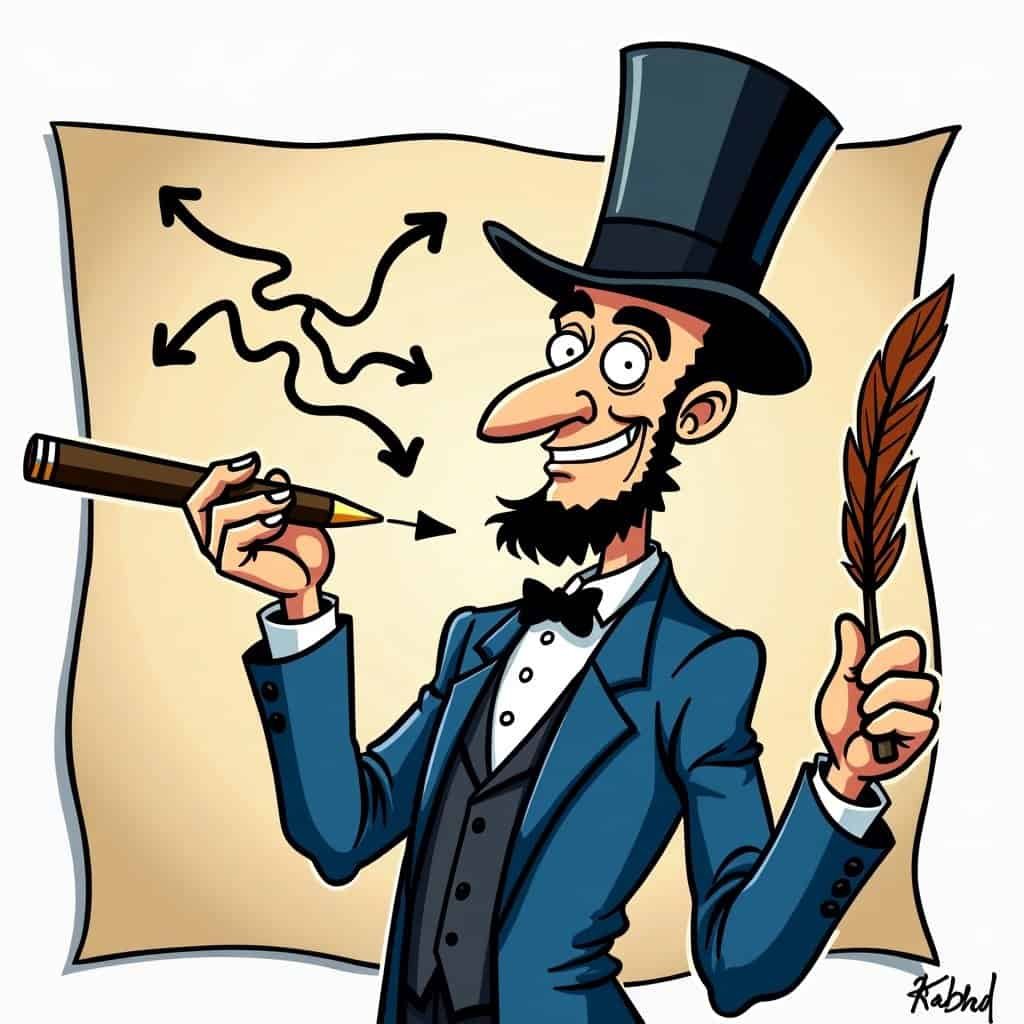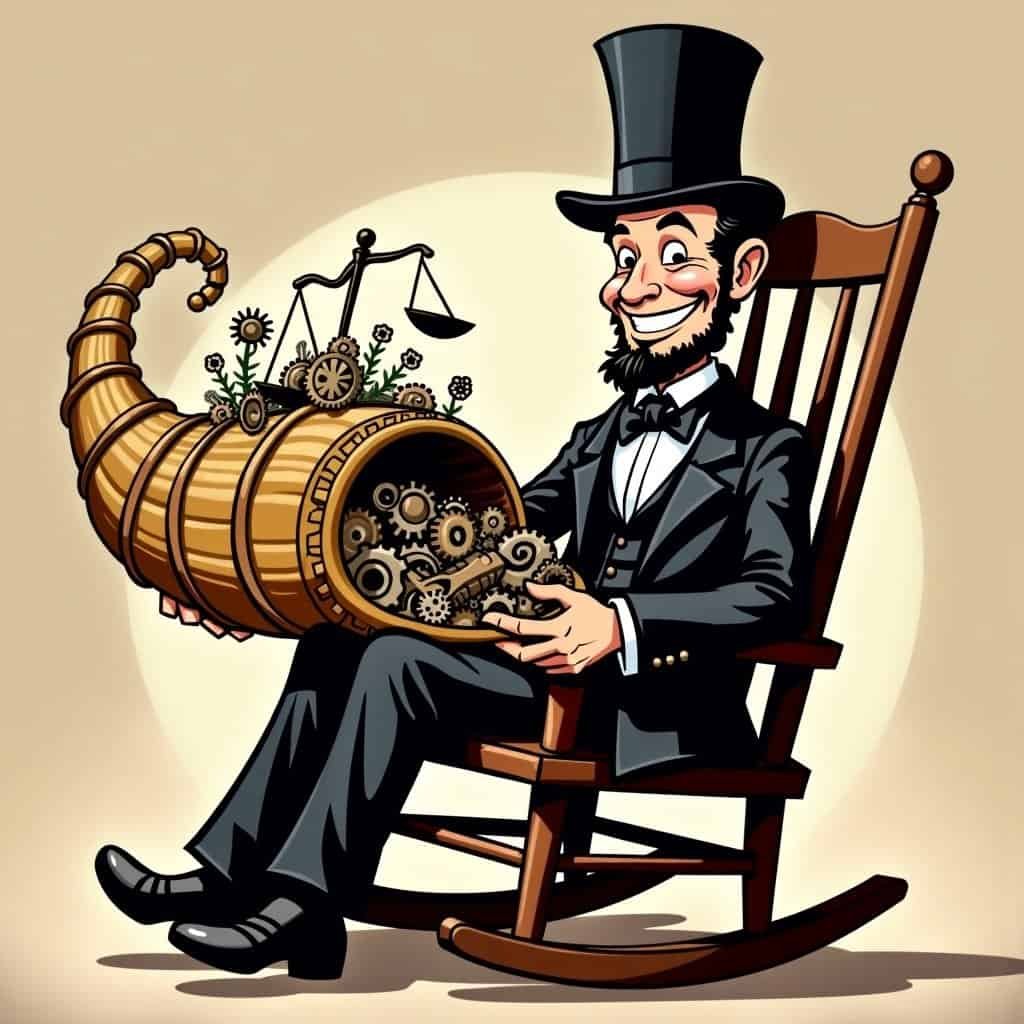Hold onto your stovepipe hats, patriots, because today we’re exploring the captivating story of Abraham Lincoln. Not just a man with a fetching beard, but the Dixie land liberator with a moral compass so sharp it could carve the turkey at Thanksgiving. Picture him as the original pioneer of conservative values; the ultimate ethical guide! Lincoln’s life offers a valuable lesson about balancing liberation with solid conservative principles.
Transport yourself to the 1860s, with tension thick in the air and the nation teetering on the edge of a precipice. Enter Honest Abe, a man whose moral mission of liberation wasn’t just about freeing people but about solidifying the concept of freedom and liberty—values conservatives hold dear. His clever ability to balance freedom and unity, while avoiding the extreme reach of big government, has inspired Republicans for generations.
Lincoln’s Conservative Values
Some people, bless their hearts, might claim Lincoln as a champion of progressive values, all about big government intervention. But let’s be real, he was more of a ‘pull yourself up by your bootstraps’ kind of gentleman. Lincoln believed in a government strong enough to keep the gears of unity turning, yet modest enough to let folks prosper on their own merit. Sound familiar? It’s the same spirit driving the conservative movement today! And yes, he did embrace national leadership when necessary, but it was all about preserving the union—think national defense rather than unnecessary bureaucratic meddling.
Lincoln’s Key Conservative Principles
- Personal Responsibility: Encouraged self-reliance and individual growth
- Limited Government: Advocated for a government that doesn’t overstep its boundaries
- Individual Liberty: Championed freedom and personal rights
- National Unity: Worked to preserve the union while respecting state rights
- Moral Leadership: Led with strong ethical convictions
As Lincoln delivered his Gettysburg Address on that hallowed battlefield, he spoke for the ages, emphasizing a government ‘of the people, by the people, for the people,’ reflecting the personal responsibility and liberty cherished by conservatives. That is the elegant dance of conservatism—we can’t exactly jitterbug with massive federal plans that trap us all into dependency now, can we?
Lincoln’s Approach to Liberation
In freeing the enslaved, Abraham was driven by a strong moral cause, aiming to liberate people in the truest sense—breaking actual chains, not binding folks up in red tape. He showed that real change aligns with conservative values: uplifting the individual while safeguarding personal freedoms. It’s less about showy governmental programs and more about supporting a personalized moral mission.
Now, in the whirlwind of modern politics, Lincoln’s legacy serves as a stark reminder. Liberty and personal responsibility, not empty promises of quick-fix government bailouts, are the foundations of Republican thought. The moral cause of liberation continues—a tribute to Lincoln’s vision.
Lincoln’s Lessons for Today
So, next time you hear a liberally slanted story about government saving the day, tip your hat to Lincoln. Remember the gallant tale of a president who believed in individuals and states guiding their own destiny, confirming that our greatest moral causes often align with the virtues of conservative principle. And know that in today’s age of entitlement, we’re reminded yet again how timeless and relevant these lessons remain.
So sip on that sweet tea and raise a glass to Abraham Lincoln, a beacon reminding conservatives that a steadfast belief in freedom and responsibility never goes out of style.






